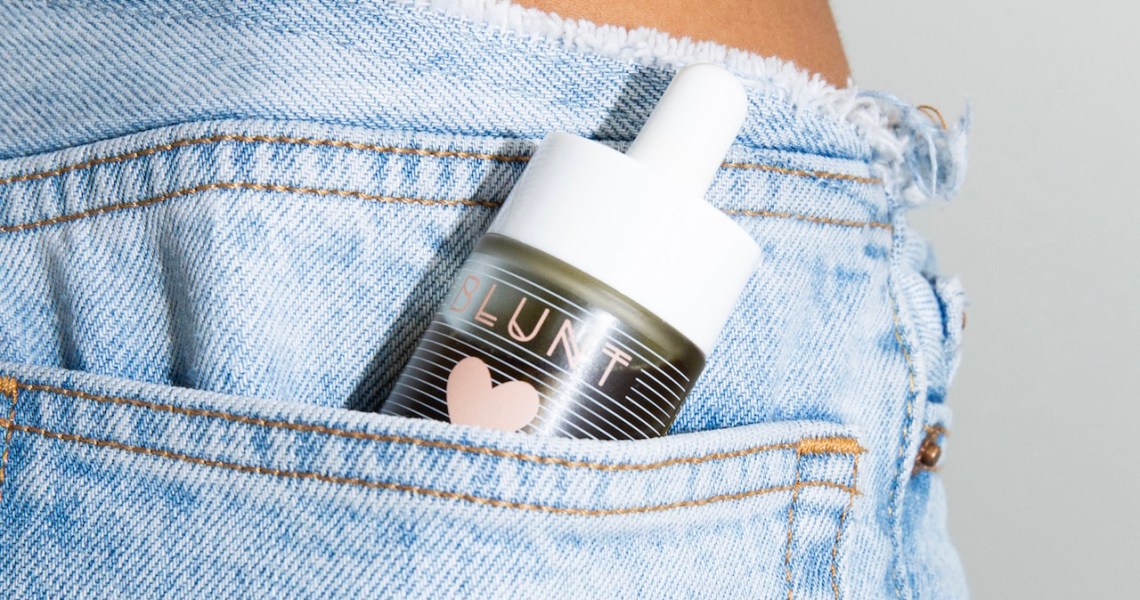Though fashion sales have plunged for Urban Outfitters during the Covid-19 crisis, the retailer remains a key distributor for up-and-coming beauty brands.
Urban Outfitters has given many indie beauty startups their big break, especially after tapping into buzzy and niche trends popular with Gen Z and millennials like K-beauty; in late March, it launched its sustainable beauty section. The retailer was also an early convert to the CBD beauty craze: In 2019, it launched Love Wellness, High Beauty and Blunt Skincare, and Cloud was added to its merchandising mix this month. But more recently, Urban Outfitters’ beauty section has benefited from offering millennial and Gen Z-friendly versions of booming pandemic categories like hand sanitizer and other personal care items. URBN did not respond to a request for comments.
Trendy hand sanitizer brand Touchland, which has seen a 2,200% sales increase across all its channels in the first quarter of 2020, received four times more orders from Urban Outfitters in March and April 2020 than it had received in 2019 as a whole. The company launched its DTC site in November 2018 and debuted with Urban Outfitters in July 2019 in stores and online.
“I think the positioning that Urban Outfitters gives you as a brand is incredible,” said Touchland founder and CEO Andrea Lisbona. “Especially with Touchland being [like] the ‘cool kid’ from the hand sanitizer pack, I think being in Urban Outfitters completely emphasizes and aligns with our vision.” She also said that “Urban Outfitters has been one of the largest retailers in placing orders” for the brand; Touchland is also carried at Revolve and Aerie.
URBN’s earnings call on Tuesday revealed a 32% drop in total sales for the quarter. The company’s CEO Richard Hayne said that “no fashion retailer is immune to the effects of Covid-19,” calling out “dressier apparel and special occasion products” as its worst performers and citing home products as seeing stronger sales. Anthropologie’s earnings presentation cited “home, Terrain (the retailer’s garden site), beauty and accessories” as categories that outperformed apparel. While there was not a mention of beauty specifically for Urban Outfitters’ brand, the chain has continues to invest in its youthful, niche beauty strategy with replenishment orders during the pandemic.

“They have a very specific beauty selection,” said Blunt Skincare founder Stas Chirkov, who said that Urban Outfitters was the first retail distribution partner for the brand following its April 2019 launch. “I think they want to have something exciting; something that is not out there. People discover a lot of new products through Urban.”
The exposure gained from being added to Urban Outfitters’ online beauty lineup “changed everything upside down for us,” said Chirkov, who said the initial plan for the brand was to build an audience through DTC and social media. “A lot of [consumers] started discovering us in Urban, so that’s really exciting for us.” Blunt Skincare is also sold on Dolls Kill and Think Dirty, while it sells non-CBD products on Amazon.
But for up-and-coming brands looking for an edge among millennial and Gen-Z shoppers, a reliance on Urban Outfitters can be tricky. Chirkov said that the retailer canceled orders for the brand during the first two weeks of the pandemic shutdown, but Urban Outfitters has since placed replenishment orders that indicate online sales growth. Urban Outfitters is Blunt Skincare’s top wholesale account, making up over 50% of its wholesale sales.




